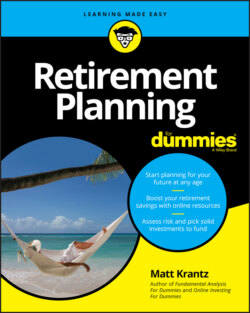Читать книгу Retirement Planning For Dummies - Matthew Krantz - Страница 40
THE FIRE MOVEMENT CAN HELP
ОглавлениеEarly retirement used to mean calling it quits when you turn 60. But a rising group of people are hoping to hang up their apron much earlier, at 40 or even younger. What’s this heresy? It’s called FIRE, or financial independence retire early.
I talk about the FIRE movement several times in this book. The strategy has plenty of holes, but these people are onto something. FIRE advocates throw away the goal of retirement as a time to do no work, and take control of their financial lives as quickly as they can so that they can do what they enjoy now.
Some of the assumptions used in FIRE planning are questionable, but one aspect that makes a lot of sense is spending control. Some FIRE leaders who left the workforce early did so because they had large incomes. Others did it by following the guidance in this chapter but at a higher level. Simply stated, they maximized savings rates to shorten the time needed before being financially independent.
Advocates of FIRE meticulously track where every penny is going. Their goal is to save 70 percent or so of take-home pay, so that they have saved and invested 25 times their annual run rate. If their run rate were $80,000 a year, the FIRE crew would aim to sock away $2 million. That way, they say, they could safely withdraw 4 percent of their portfolio (following the 4 percent rule), or $80,000, a year.
I dig further into the FIRE movement and the 4 percent rule later in the book. But we can all learn from the FIRE philosophy. Two blogs explain FIRE well. Mr. Money Mustache (www.mrmoneymustache.com) pretty much kicked off the FIRE movement with his story of spending 50 percent less than most people. Doing so allowed him to retire at 30. Mr. Money Mustache doesn’t disclose how much he earned. But a 2016 New Yorker article shares some income figures (www.newyorker.com/magazine/2016/02/29/mr-money-mustache-the-frugal-guru). Armed with a computer-engineering degree, he earned $41,000 a year in 1997. He then moved to another tech company in 1999, at age 24, and made $75,000. Mr. Money Mustache retired in late 2005 with a $600,000 portfolio and a paid-off house.
The blogger Financial Samurai (www.financialsamurai.com) also saved half his after-tax income and retired at 34. He gives lots of financial details on how he did it, but his high income while he was working certainly helped.
Even if you love your job and plan to work forever, the FIRE movement brings a precision to savings that’s worth listening to.
